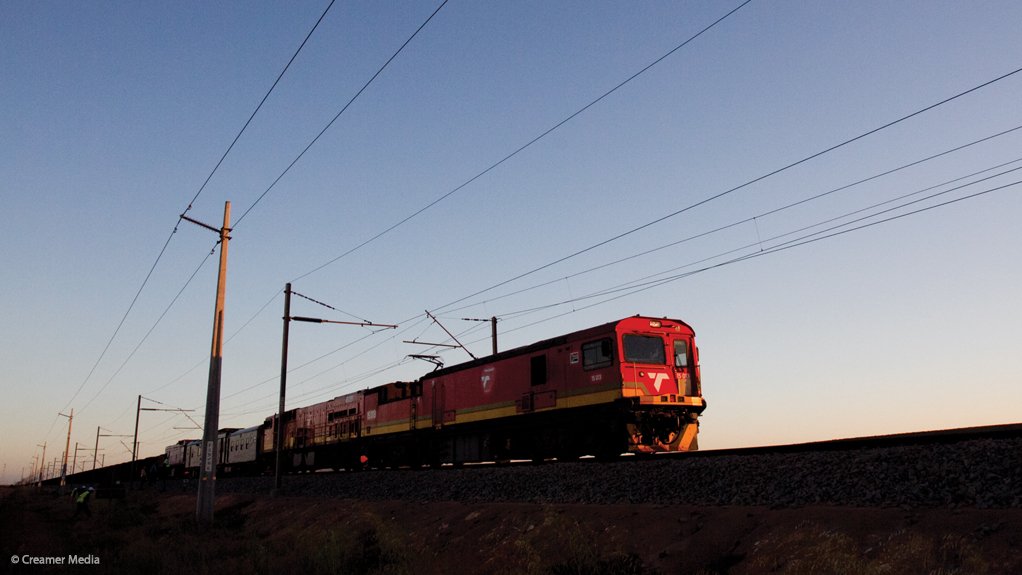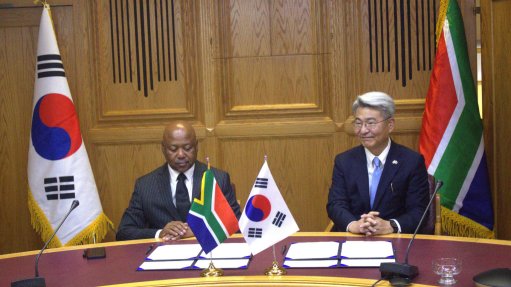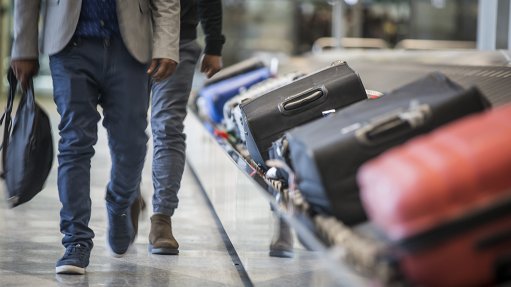DTI moving to iron out local-content frustrations around Transnet contracts
The Department of Trade and Industry (DTI) has confirmed that it is “concerned” about whether all four of the original equipment manufacturers (OEMs) that have been awarded parts of a R50-billion contract to supply 1 064 electricity and diesel locomotives to Transnet will meet the minimum thresholds set out in local-content designations for the rail rolling stock sector.
The stipulated thresholds for local production and content are 60% for electric locomotives and 55% for diesel locomotives, with various components, such as car body shells and bogie frames, to be fully localised from the start of the programme. Other components, such as traction motors and braking systems, are expected to be localised progressively over a six-year period.
General Electric South Africa Technologies and China’s CNR Rolling Stock South Africa have been awarded contracts to supply 233 and 232 diesel locomotives respectively, while CSR Zhuzhou Electric Locomotive and Bombardier Transportation South Africa will supply 359 and 240 electric locomotives respectively. Subsequent to the orders being placed in 2014, the two Chinese companies merged to form the China Railway Rolling Stock Corporation, but the contracts will still be monitored separately.
Deputy director-general for industrial policy Garth Strachan tells Engineering News Online the DTI is concerned that the thresholds are not being met evenly across all four OEMs. It has, therefore, initiated an “intensive process” with Transnet, the OEMs and some domestic suppliers to deal with inconsistencies and to ensure that local content is verified, monitored and delivered.
Local content under the designation, which trumps the Competitive Supplier Development Programme (CSDP) rules hitherto used for fleet procurement by State-owned companies, is verified by the South African Bureau of Standards (SABS) using the SATS 1286:2011 technical specification.
However, there have been reports that the SABS is dissatisfied with the information flow from some OEMs, while a number of domestic suppliers have also raised questions as to whether all of the companies are fully committed to the programme. There is believed to be particular unhappiness with the performance, to date, of the Chinese suppliers.
Strachan would not be drawn on the performance of individual OEMs, though he tells Engineering News Online the department is aware that some suppliers are more advanced than others in meeting the commitments.
He says government has a list of around 50 domestic companies that are already involved in the contracts, but that it is also aware that some suppliers are struggling to meet OEM price, quality and schedule requirements.
The DTI will not entertain any slippage in standards to accommodate domestic suppliers, as one of its intentions is to ensure the programme spawns local railway component suppliers capable of participating in global OEM supply networks.
Equally, the department is reluctant to entertain deviations from the minimum thresholds outlined in the National Treasury’s 2014 instruction note to accounting officers, which stipulate the local-content requirements when purchasing rail rolling stock.
The note assumes that domestic capacity already exists for a number of components, while outlining a timeframe for raising localisation levels across the other components. It is understood that some OEMs are, nevertheless, struggling to identify domestic firms that are in a position to immediately meet their requirements, with some questions even being raised about the validity of research that informed the designations.
Strachan says the DTI will be “flexible” and will provide deviation letters, where absolutely necessary. However, its preference is to work with the OEMs and suppliers to ensure the thresholds are met, using incentives and government’s technology localisation unit to support those firms that are not immediately in a position to meet OEM requirements.
Government is currently investigating the possibility of creating a dedicated incentive programme for the rail sector as part of a broader plan to give higher priority to sector-specific schemes ahead of generic incentives.
Discussions were also under way with the National Treasury and the SABS to assess how verification could be streamlined and funded. In some cases, government may accept self-declarations, with stiff penalties for those discovered to be in breach.
STEEP LEARNING CURVE
Strachan stresses that the Transnet ‘1064 programme’ is the first large fleet procurement being conducted under the designations and that government is “learning by doing”.
“It’s a steep learning curve and in some areas we are having to play catch up,” he reports.
Nevertheless, procurement is perceived by the DTI as being government’s “strongest industrialisation lever” and it is determined, therefore, to ensure obligations are met. A failure to do so would translate into volumes that are too low for domestic component manufacturers to obtain the economies of scale required to evolve into business that could compete in global rail supply chains – government’s ultimate goal in creating domestic demand security.
But achieving that objective is “complex”, as it relies not only on the adherence to designations, but also on goodwill and the development of solid relationships with the OEMs. “It’s not a destination, but a journey,” Strachan avers, adding that government is hoping that its conversations with the industry will result in more even localisation outcomes.
Transnet chief advanced manufacturing officer Thamsanqa Jiyane concurs, saying the local-content thresholds under the rolling stock designation is distinct (and should not be confused with) the supplier development previously pursued by the utility under the CSDP and administered by the Department of Public Enterprises.
Jiyane acknowledges particular unhappiness with the localisation performance associated with the purchase of 95 electric locomotives supplied from CSR – an urgent contract that preceded the 1064 programme. However, he stresses it was Transnet Engineering, rather than CSR, that failed to gear up in time to supply the car body shells locally, as envisaged.
He also accepts that Transnet, the OEMs, domestic suppliers and government are all still adjusting to the designations, which has led to some confusion and frustration. Nevertheless, Jiyane is adamant that there is “no crisis” and argues that it is premature to suggest that the programmes are failing.
The OEMs are still gearing up to begin with the domestic portion of manufacture and assembly. “We are engaging with the DTI so that when the first set of reports come out we can either put pressure on those OEMs that are not performing to levels expected, or even halt production where there are serious problems.”
Article Enquiry
Email Article
Save Article
Feedback
To advertise email advertising@creamermedia.co.za or click here
Comments
Press Office
Announcements
What's On
Subscribe to improve your user experience...
Option 1 (equivalent of R125 a month):
Receive a weekly copy of Creamer Media's Engineering News & Mining Weekly magazine
(print copy for those in South Africa and e-magazine for those outside of South Africa)
Receive daily email newsletters
Access to full search results
Access archive of magazine back copies
Access to Projects in Progress
Access to ONE Research Report of your choice in PDF format
Option 2 (equivalent of R375 a month):
All benefits from Option 1
PLUS
Access to Creamer Media's Research Channel Africa for ALL Research Reports, in PDF format, on various industrial and mining sectors
including Electricity; Water; Energy Transition; Hydrogen; Roads, Rail and Ports; Coal; Gold; Platinum; Battery Metals; etc.
Already a subscriber?
Forgotten your password?
Receive weekly copy of Creamer Media's Engineering News & Mining Weekly magazine (print copy for those in South Africa and e-magazine for those outside of South Africa)
➕
Recieve daily email newsletters
➕
Access to full search results
➕
Access archive of magazine back copies
➕
Access to Projects in Progress
➕
Access to ONE Research Report of your choice in PDF format
RESEARCH CHANNEL AFRICA
R4500 (equivalent of R375 a month)
SUBSCRIBEAll benefits from Option 1
➕
Access to Creamer Media's Research Channel Africa for ALL Research Reports on various industrial and mining sectors, in PDF format, including on:
Electricity
➕
Water
➕
Energy Transition
➕
Hydrogen
➕
Roads, Rail and Ports
➕
Coal
➕
Gold
➕
Platinum
➕
Battery Metals
➕
etc.
Receive all benefits from Option 1 or Option 2 delivered to numerous people at your company
➕
Multiple User names and Passwords for simultaneous log-ins
➕
Intranet integration access to all in your organisation





















